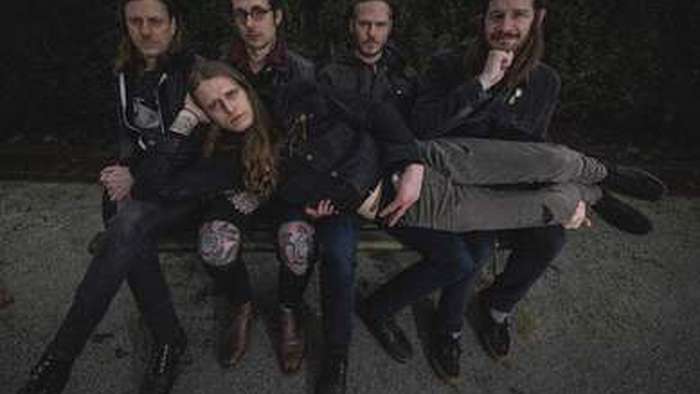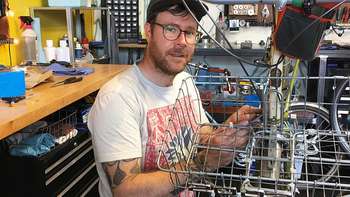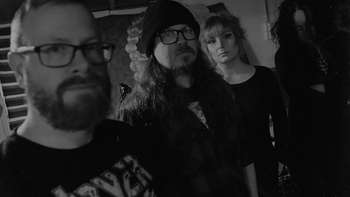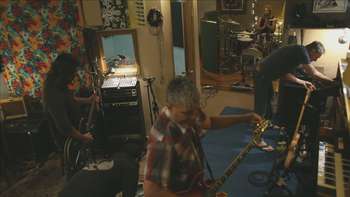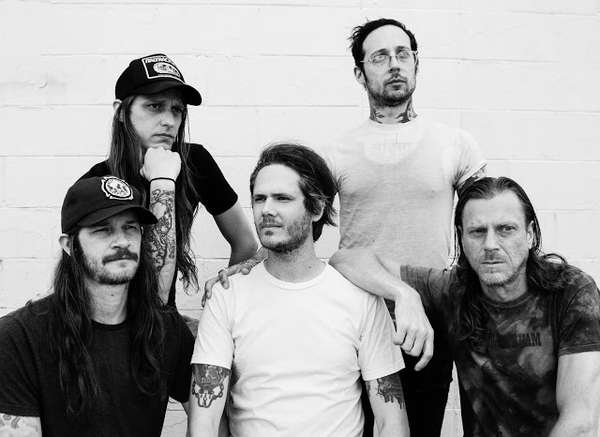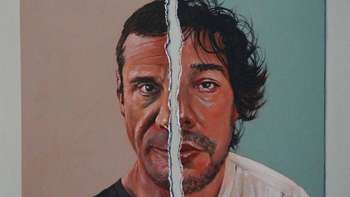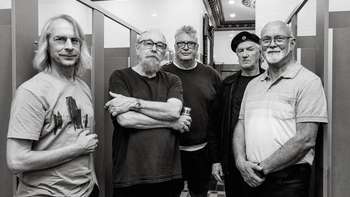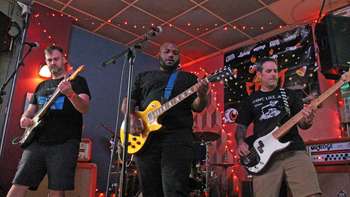There are a lot of misconceptions about the life of a musician. The old rock star image of bright lights, fast living and traveling with an entourage is almost patently false. Sure, it’s reflective of a few artists from yesteryear who have platinum records and shortened lifespans, but most musicians have day jobs – and not just to pay the bills. Jobs provide new challenges, personal fulfillment and, yes, some rent or gas money.
And usually when somebody is writing a new record or scheduling a tour, they have to balance that with their job.
How an artist spends their time by day will influence the creative process at night. In Don’t Quit Your Day Job, Scene Point Blank looks at how musicians split their time, and how their careers influence their music – or, alternately – how their music provides escape.
In this installment we emailed with Kevin Keegan, vocalist in Dead Quiet, who recently released Truth and Ruin on Artoffact Records. In this piece, we get to know how Keegan’s role as a mental health worker influences Dead Quiet (and more).
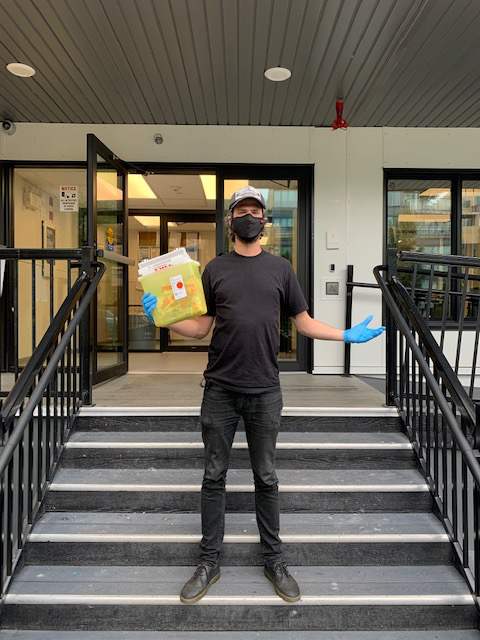
Scene Point Blank: You're a project manager working in mental health and overdose prevention. What is your job title and how long have you been doing
it?
Kevin Keegan: I started out 6 years ago as a Mental Health Worker. It’s a mixed bag of a job: you’re part paramedic, part janitor, part social worker…
We work with the Hard To House in Vancouver so it’s a diverse group. Mostly mental health and addiction-based cliental. I now work for the same organization but in a management role.
"There’s a song on the record about the couple of times I found dead bodies at work."
Scene Point Blank: What is your education? What brought you to this specific job?
Kevin Keegan: I have a degree in Religious Studies, which really has nothing to do with the work I do now. I sweet talked my way through the interview and managed to convince them that the degree was relevant. I had a few friends who worked in the field and they turned me onto it.
Scene Point Blank: As a project manager, I imagine you had some experience before this position? How did you get to this point in your career?
Kevin Keegan: Not really, I just worked my way up through the organization, I’ve been doing this so long that they finally gave me a promotion.
Scene Point Blank: Before the interview you mentioned a few crazy stories. What are a few of the wildest ones that you can share?
Kevin Keegan: They all start to blur together. I was once trying to get some pigeons out of a guy’s room and they attacked me. I put my head down and let them claw at my hoodie as I scurried out the door and finally got them to let go outside. Other than that, just a lot of conflict resolution between individuals wielding all kinds of weapons. I once had a 4-litre of milk thrown at me.
Scene Point Blank: What got you interested in this kind of work?
Kevin Keegan: I like the idea of helping others as well as the flexible schedule. I started out doing three 12-hour shifts a week, which was perfect for writing and performing music. Four days off a week is a huge perk.
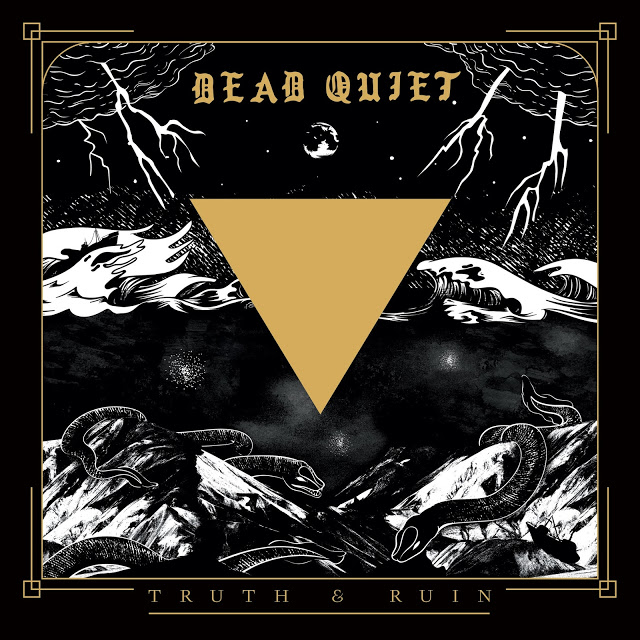
Scene Point Blank: Addiction is an interesting topic for musicians as well. (When touring is possible) most musicians spend a lot of time in bars, for example.
Is it something that carries over from your day job to being a touring musician?
Kevin Keegan: The amount of trauma you absorb inevitably rears its ugly head for sure. The way I drink after a harsh day at work compared to a few beers at a rad show I’m playing is definitely a different vibe. One is certainly more celebratory than the other.
Scene Point Blank: Have you been in bands as your career has progressed?
Kevin Keegan: I’m really lucky that I get a lot of time off and my employer is really understanding of my musical pursuits. I’m sure they get really annoyed but I’ve been able to do a lot of touring and kept this job throughout.
Scene Point Blank: What’s the biggest challenge in balancing your career with your music?
Kevin Keegan: The burnout rate in my line of work is pretty high. Music has usually brought me out of slumps but it has also been compromised by bouts of unproductivity because of work-related depression and anxiety.
Scene Point Blank: Your workday itself sounds pretty unpredictable -- would you say the same of your schedule? Does it influence your music schedule in any way?
Kevin Keegan: I’m on call with work so I’ve definitely had to leave the room during rehearsal on a few occasions to take work related phone calls. Other than that my office hours are 9-to-5 so I’m able to meet with the dudes in the evenings for the most part.
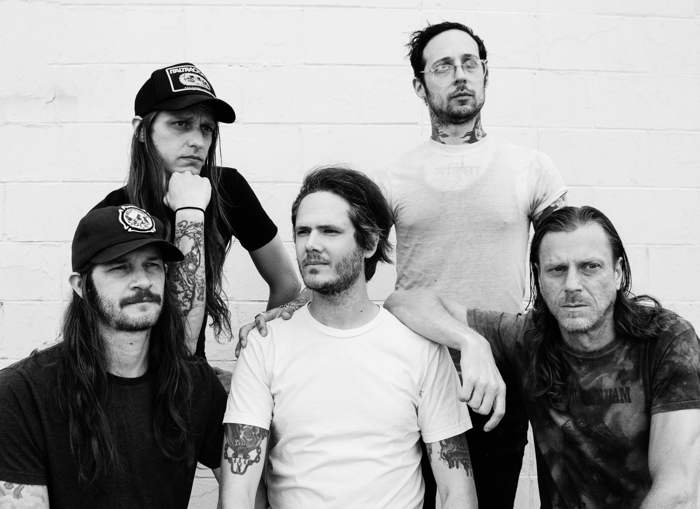
Scene Point Blank: How does that schedule influence your creative process? (Do you write better at a certain time of day, or on weekends, for example, and does your work impact your ability to find that creative mindspace?)
Kevin Keegan: I definitely write on my days off. I need a morning to just drink coffee, relax and fuck around on the guitar. That’s usually where I find the spark.
Scene Point Blank: You're not the only one in Dead Quiet who works there, right? Is there a band rule about "bringing work home with you"?
Kevin Keegan: It’s actually pretty handy being able to vent with your bandmates about the work. Three of us do more-or-less the same job. Brock recently quit because it was getting a little stale for him. It’s not for everyone, its pretty thankless. It’s been great having a mutual outlet together though, for sure.
Scene Point Blank: Has your work had a direct impact on your upcoming record?
Kevin Keegan: There’s a song on the record called, “Cold Grey Death,” which is about the couple of times I found dead bodies at work. That song helped me cope with this very unique experience. There’s also a lot about my struggles with drugs and alcohol, which definitely gets exacerbated by the work.
Scene Point Blank: Have your experiences from making music or touring influenced your career in any surprising ways?
Kevin Keegan: Actually being in the band leadership and management role for so long inevitably gave me that similar skillset when I started as a project manager in social housing.
Scene Point Blank: Are your coworkers aware of your music?
Kevin Keegan: They are. It’s a huge part of my life so eventually they find out what I’m up to after hours. There is an abundance of musicians that work in this field so it’s inevitable that I meet or even know co-workers from the music scene.
Scene Point Blank: Were they aware at the start, like at the job interview or training stage?
Kevin Keegan: Yeah, I disclosed that I do tour and play music and they were not surprised because so many staff have that in common.
Scene Point Blank: What advice would you give to others who might be interested in the mental health industry but don't know where to start?
Kevin Keegan: Send me your resume, we’re always hiring! It’s really not for the faint of heart. You need to be able to choke down a lot of verbal and emotional abuse.
